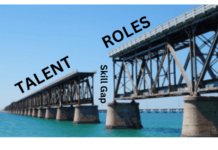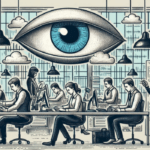More than half the surveyed professionals feel that a strong connect between industry and academia is still missing.
While India has been gearing up to skill its youth with PM Modi’s Skill India campaign, a recent study by IBM has also stressed the fact that addressing the looming talent shortage will be instrumental in preparing India for the competitive global economy, and that the industry has to play an important role in this. According to the study conducted by the IBM Institute for Business Value (IBV) in cooperation with the Economist Intelligence Unit, more than half the surveyed professionals feel that a strong connect between industry and academia is still missing.
As per the IBM study, ‘Upskilling India’, 54 percent of the surveyed professionals believe there is a clear lack of interaction between industry and academia. The survey also revealed that most Indian executives agree that the quality and quantity of skills in the Indian workforce are at least comparable to those of other countries, and many reported them to be superior. However, only 40 percent indicated new employees recruited in local labour markets have the requisite job skills.
The Indian executives surveyed believe that much of the nation’s current higher education system fails to meet the needs of students, industry and society. About 61 percent of India’s surveyed educators indicate that the higher education system is unable to respond to changing societal needs. New technologies, ever-changing skills requirements and outdated curricula are challenging India’s higher education system in its efforts to equip graduates with job-ready skills.
With enormous growth potential displayed by the Indian economy in the recent years, entrepreneurship has grown rapidly after 2010. However, the looming skill gap is a major roadblock for India’s growth. The Indian executives surveyed highlighted that improved access to higher-quality skills will boost productivity and efficiency throughout the economy.
The required skills, however, are changing as rapidly as the industries and the economy itself. New digital technologies are disrupting the business landscape and impacting structure of industries and economic activity. Traditional value chains are becoming increasingly fragmented, and new types of business ecosystems are rapidly forming and evolving. Hence, it is high time that the industry takes an interest in and invests efforts in connecting with academia to bridge the existing skill gaps.
“Today’s rapidly evolving economic environment makes up-skilling an imperative across job profiles and sectors. India is caught by both a skill gap and a higher education sector struggling to keep up. That is why it is critical to take proactive measures to transform the higher education system to create a new model that better aligns with industry imperatives,” said DP Singh, vice president and head, HR, IBM India/ South Asia.
The study says that to achieve the objective of improved employability, higher education programs will need to become more relevant, practical and applicable. When asked to rate specific actions to address the higher education performance gap, respondents ranked expanded collaboration between learning institutions and businesses highest, with 77 percent leaders agreeing to the same, followed closely by the need to introduce more practical and experience-based elements into curricula. Higher education leaders in India also agree that industry participation in education curricula development will increasingly prove essential to supporting successful education outcomes.
In another IBM survey on global higher education, 80 percent said that this collaboration between industry and education is necessary in developing curricula and coursework, and 68 percent respondents said that industry demand for specific skills should directly drive higher education activities and strategic priorities.
In line with this, Singh says, “At IBM, we believe in providing an environment conducive to fostering new learning and development experiences aided by the power of technology. We are working with government bodies, academia, corporates, start-ups and recruitment firms to equip India with a ‘job-ready’ workforce.”
The study recommends the following actions to enhance higher education such that it matches the existing and future skill requirements.
Develop more practical, applied, experience-based education
Rethink higher education curricula by identifying opportunities to infuse experience-based and real-world learning experiences and embracing new teaching technologies and techniques. Higher education institutions should build alliances with industry partners, share learning and refine strategies.
Embrace technologies that improve educational access, experiences and outcomes
Assess current capabilities and requirements, experiment with using new technologies and extend capabilities through ecosystem partners.
Build deeper relationships with ecosystem partners
Identify the right partners from academia, industry and the public sector and empower an orchestrator. Define and reach consensus with key partners around a common vision for the education ecosystem, with clearly defined commitments from all partners. Formalize and design for sustainability.
The study derived insights from a survey of academics, corporate recruiters and emerging education leaders in India. In addition, it also analysed results of recent surveys of start-up entrepreneurs, venture capitalists and corporate executives.
Value our content... contribute towards our growth. Even a small contribution a month would be of great help for us.
Since eight years, we have been serving the industry through daily news and stories. Our content is free for all and we plan to keep it that way.
Support HRKatha. Pay Here (All it takes is a minute)




































